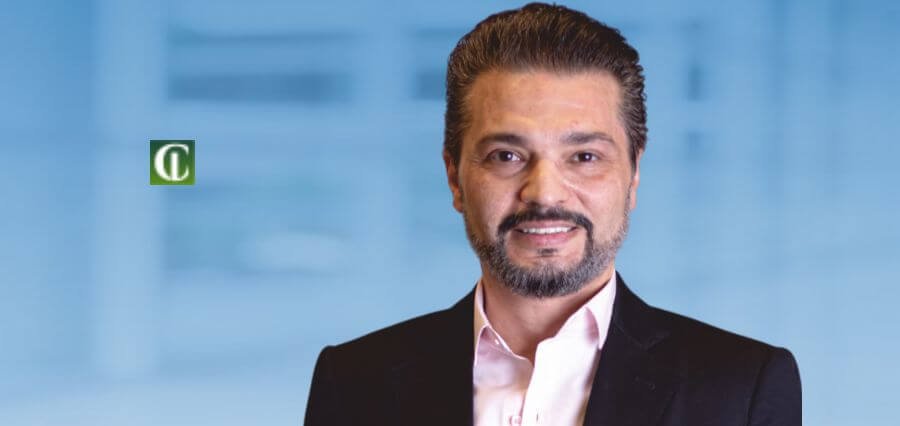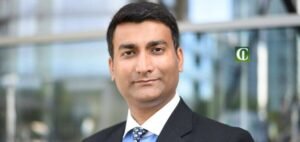Amid the crowded pages of healthcare innovation in the Middle East and North Africa, transformational visionaries like Dr. Ahmed Fathy are changing the landscape of healthcare innovation. This innovative, enterprising individual serves as MEDEX’s CEO. He has transformed medication waste an irrevocable loss into a lucrative business tactic. It has created page one headlines worldwide and had a huge impact in a number of ways.
The Inception of a Groundbreaking Concept
It began with Dr. Fathy’s seemingly straightforward but startling realisation that the pharmaceutical industry was squandering billions of dollars annually on medication waste while failing to address urgent medical shortages and environmental problems. He saw it as a revolutionary opportunity to change the system, while others saw it as an impossibility.
“Becoming the future of the Arab means a transition from reactive to proactive and sustainable systems,” asserts Dr. Fathy. Since its establishment, MEDEX has served as a vehicle for change in the Arab world, in line with his vision. “We should have innovations spearheaded by our own possibilities and needs in order to address real and potential issues in health, education, economy, and the environment.”
Dr. Fathy did not lead a brainstorming session. Prior to founding MEDEX, he had used his doer-innovator mentality to a few prior endeavours that sought to provide practical answers to regional issues. However, MEDEX, a platform to address pharmaceutical waste, health concerns, financial losses, and environmental damage, was his largest canvas.
Building an Ecosystem of Impact
What is unique about MEDEX is not only its pioneering strategy towards the management of pharmaceutical waste but the entire system that has been developed around that central problem by Dr. Fathy. Scalability was part of the project’s DNA from day one, where geographical growth was always on the master plan and one day will be worldwide in favour of six of the UN SDGs.
The MEDEX model reaches out to hundreds of nodes in the value chain of the pharma industry. It builds a “smart network” that interlinks thousands of pharmacies without trivializing their day-to-day economics and processes. It’s not about harvesting waste. It’s about making the pharma ecosystem better.
For pharmacies, MEDEX has provided quantitative advantages of returns on investment and compensating for drug expiration. Geographical medicine shortages have been bettered with the system, safeguarded patients against counterfeit drugs, and been key support to vulnerable populations, foremost among them being rural communities. The impact crosses over the area of efficiency enhancement. It is about building a healthier and more responsive health infrastructure.
Driving Industry-Wide Transformation
The waves of MEDEX innovation have wide-reaching effects on establishments other than standalone pharmacies. Pharmaceutical companies have witnessed monumental instances of volume annual sales through the portal. They have also taken advantage of the added benefit of gaining entry into the previously unreached data. It has revolutionized their manufacturing as well as selling patterns forever. The database is an information treasure house that can potentially be used by regulating bodies in assisting pharmaceutical traceability as well as health insurance processes.
Dr. Fathy is a symbol of an ideal approach to handling the government: sustainability of change means much is carried out through institutional acceptance. Instead of being in conflict with systems, he has collaborated with policymaking and regulatory institutions up to the limits of his ability. His objective is to minimize wastage in national budgets every year and in the provision of statistics for policymaking.
The entire scientific community has benefited from the MEDEX model. The website has also enabled research experiments in pharmaceutical science and clean energy fields. Such inter-functionality is responsible for the push by Dr. Fathy, who believes that innovation must create value for multiple groups simultaneously.
Above all else, MEDEX has measurably increased the reduction of chemical pollution in environmental and climatic terms. Recycling strategy adopted by the location of high-grade packaging materials, rather than dispatching them out in forms that raise pollution levels, demonstrates the compatibility of cost feasibility and environmental sustainability.
Having a German sister school, Dr. Fathy’s staff also came up with means of recycling waste pharmaceuticals to create green energy, the kind of global cooperation that really matters. Adding artificial intelligence to sort through vast amounts of data about trends in pharmacies places MEDEX at the head of the list of healthcare technology innovation.
Its social contribution is to empower the populace and create jobs. MEDEX created new jobs and source of livelihood for women, especially in the rural and disadvantaged groups. This is not coincidence but indicative that Dr. Fathy has a conscious plan in giving innovation a place to act for broader social development objectives.
Leadership Philosophy Beyond Profit
It is not Dr. Fathy’s business sense per se that renders him among the greatest leaders, but the very definition of success. “I never measure success in leadership by financial growth,” he explains. Rather, he seeks to create lasting systems that transcend adversity and provide humanity and society with lasting outcomes.
This philosophy is also applied to the company culture in MEDEX. Dr. Fathy emphasizes the hiring of partners and employees who have a sense of belonging to the company and are committed to its mission. He has developed what he calls a “comfortable working environment conducive to innovation and development” where staff develop their confidence and space is provided for them to test and learn from errors.
His vision for successful Arab leadership is one of keeping open to a globalist mind but grounded in indigenous culture and knowledge. “Successful leaders innovate and revive hope without becoming detached from reality,” he states, “challenging hard old structures with development and innovation, leading by example and not by words.”
Resilience in Overcoming Challenges
The journey to today’s success of MEDEX has not been easy. The project was initiated only a few months ahead of the COVID-19 pandemic, and it had to halt operations in the midst of full-fledged preparations. Rather than seeing this as a failure, however, Dr. Fathy employed the period of time to more adequately solidify communication and awareness campaigns. This eventually galvanized public opinion in the pharmaceutical industry towards advocacy for adoption and reform.
Regulatory issues were another proving ground. Radical reinterpretations of government regulations to fit revolutionary concepts in a century-old arena of inflexible, non-adaptive systems needed what Dr. Fathy refers to as “perseverance and flexibility.” With constant dialogue and shown merit, his organization persuaded decision-makers within government ministries.
The most conspicuous, however, was likely pan-scaling internationally- the model and concept implementation across different markets in different policy and regulatory systems. This included extensive regional traveling within the MENA, African, and European Union nations to showcase expertise in a range of industries. The venture then reaped success in international government and private sponsorships that constitute part of the crème of MEDEX today.
Balancing Innovation with Cultural Values
Dr. Fathy’s modernization style is a culturally directed one. He is strictly opposed to borrowing development paradigms from somewhere else and trying to apply them to society at the local level. Rather, he believes there is a necessity to leave some room for regional culture and tradition and at the same time keep on pursuing developmental objectives without the loss of cultural identity.
This philosophy is used to guide MEDEX’s expansion strategy and modus vivendi. In place of a cookie-cutter model, the platform is responsive to local context yet sustains underlying innovative principles. This cultural responsiveness has contributed extensively to being embraced across various markets and regulatory regimes.
Vision for the Future
Moving forward to 2025 and beyond, Dr. Fathy’s top priorities are to grow MEDEX’s chain of homes for pharma waste collection and recycling into billions of dollars in market value. Growing will open the MENA region and African nations up to new channels of cooperation and world partnership.
Systematic roll-out of a global “HANDS for GOOD” forum is in accordance with UN Sustainable Development Goal 17, namely the establishment of cross-sectorial partnership. Dr. Fathy sees his job in the creation of regional and eventually global infrastructure for sustainable waste management of pharmacies and green innovation as his contribution.
This is a bold step, an expression of his thesis that sustainable leadership is system thinking and boundary-bending action and cooperation. He’s not merely thinking about business growth, he’s establishing platforms for change in business.
A Roadmap to Potential Leaders
Dr. Fathy’s recommendation to the individuals who would prefer to make meaningful contributions to communities is simple common sense from his own experience in business. He recommends beginning with specifying actual problems, studying them intensively from all conceivable angles, and carrying out actual feasibility studies prior to acting.
“Look to the impact, not the praise,” he challenges, appealing to humble cooperation and bold action. His appeal to unremitting and long-suffering labour comes out of in-depth experience: “measuring real impact takes hard work and a clear vision that will be felt for generations.”
The Broader Significance
Dr. Fathy’s MEDEX is a profit-generating business enterprise beyond itself. It’s a new Arab business model. By creating solutions in the domestic market with creative thinking that adds value to a high number of stakeholders, he’s showing how to conduct good business and conduct good in harmony.
His regulatory alignment, cultural sensitivity, and interest in sustainable development serve as a model for other businesspeople who want to leave lasting legacies. First among all of these is his systems construction prior to business construction, a trait of mature thinking that positions MEDEX to leave lasting effects irrespective of the leader.
With the Middle East world continuing to push forward towards diversification and sustainable development, innovative thinkers such as Dr. Fathy can look to make region-based innovation exert its influence on the global stage. Not only is he innovating the management of pharmaceutical waste with MEDEX, but he’s also placing a shadow over the potential when there are visionary minds coupled with the large-scale implementation and complete dedication to improving society overall.
The tale of MEDEX and Dr. Fathy goes on, but its impact is already being felt. In a corner of a world struggling to balance tradition and modernity, his work reveals that the deepest transformation is born in the simplest recognition that all that stands between us and our future contains within it the seeds of potential.
Read Also : Vishal Vaghela: Redefining Cybersecurity Leadership Through Human Connection




